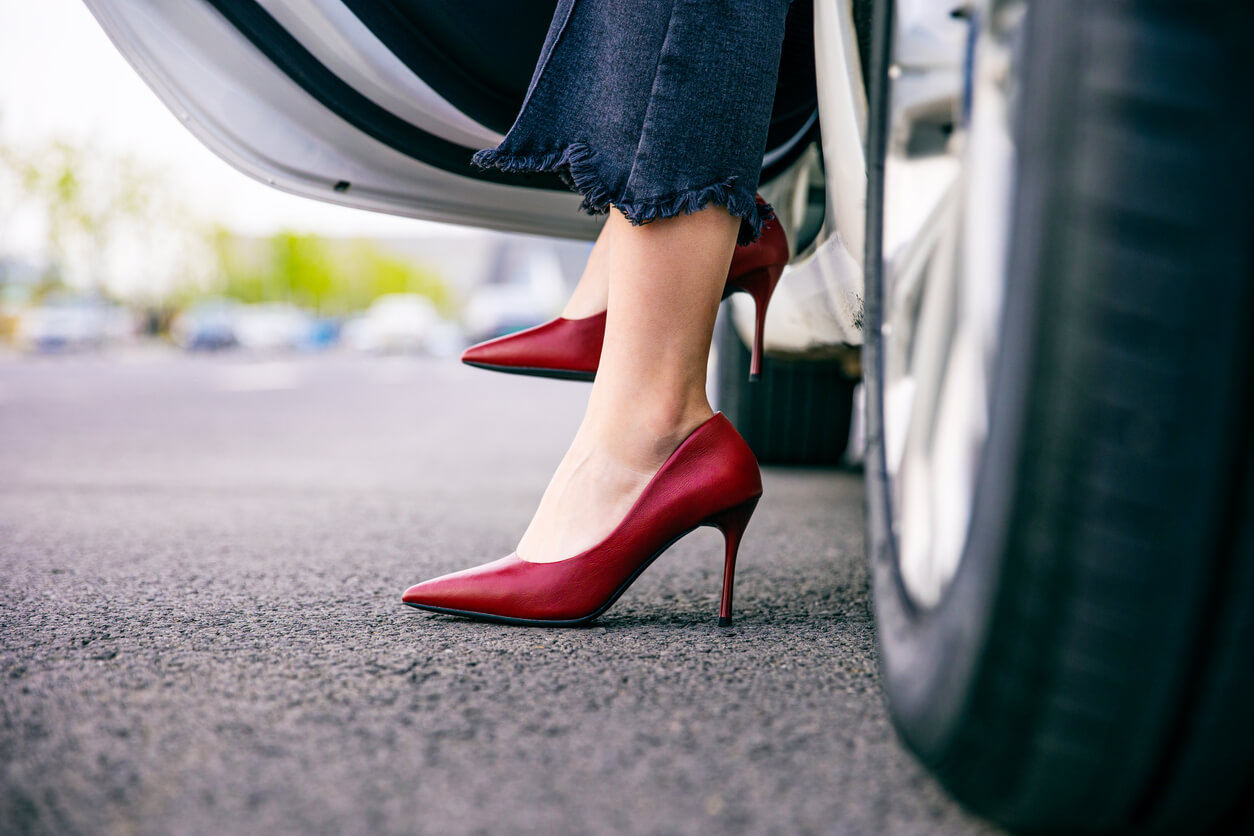Could my high heels be the reason that my bunions seem to be getting worse?
Is it possible that COVID-19 may have accomplished what healthcare professionals and study after study have failed to do for years? For now, at least, a large number of women have decided that they have no intention of ever going back to wearing the 3, 4, even 5-inch heels that they steadfastly refused to give up in the past.
Over the past year and a half or so, going to work has meant sweat pants and sneakers or shorts and flip flops, depending upon season and location. During the initial months of the pandemic, when we were all first settling into social distancing and working from home, sales of dress shoes, including those pointy-toed high heels, plummeted 70 percent.
In fact, sales of the more extreme versions of high heels were already starting to fall. Women were starting to rebel at being expected to wear them in spite of the damage it was doing to their feet and backs.
Even some of the more high-end fashion designers, like Louis Vuitton, Roger Vivier, and Gucci have bowed to pressure and the inevitable by adding lower heels, wedges, and even sneakers to their collections.
Health Consequences of Wearing High Heels
If the COVID pandemic has actually forced the issue on high heels, it will be one good thing that has come from this otherwise tragic period. All of those studies alluded to above have shown that high heels do more than simply cause pain while being worn. They do long-term damage to women’s feet, as well as to other parts of the body, and increase the risk of injury.
According to one survey, the number one complaint from women about foot pain is caused by wearing high heels. This is the price exacted for contorting feet into a steep “plantarflexed” position, which means the foot and toes are pointing down, like when on tiptoes.
Reported symptoms range from calluses, blisters, ingrown toenails, pulled muscles, ankle sprains, hammer toe, sore calves, and weakened tendons to lower back and knee pain, as well as issues in other areas of the body. High heels are almost always too narrow in the toe area, so, yes, you should add bunions to the list.
Consistently wearing high heels may even lead to a shortening of muscle fibers and a toughening of the important Achilles tendon. If this happens, it can reduce the ankle’s range of motion.
If you’re experiencing foot problems related to shoewear, get checked out with your orthopedist.
If you have questions or concerns about any foot or ankle issues, Dr. Christopher Hubbard is a board-certified Orthopedic Surgeon with Ortho-Care Wayne in Passaic County New Jersey and is the former Chief of the Foot and Ankle Service at Mount Sinai Beth Israel in NYC.
To schedule an appointment, or if you just have questions, please use our convenient online contact form by clicking here.
